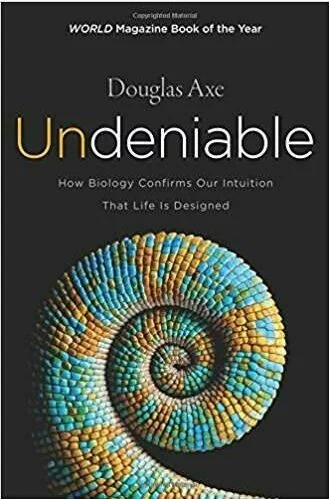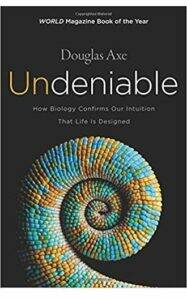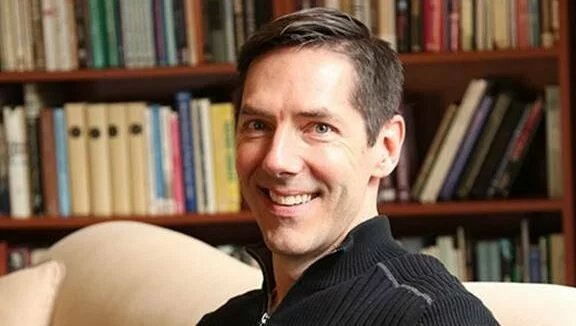First, my sincere thanks to everyone who took the time to read and comment on my book, and to Hans Madueme for organizing this exchange.
In his well-known book The Blind Watchmaker, Richard Dawkins asked, “Were we [humans] designed on a drawing board . . . our parts assembled by a skilled engineer?”Richard Dawkins, The Blind Watchmaker (London: Longman, 1986), 3. Here, beneath the metaphor and apart from his rhetorical motives, lies a very sensible and timeless question. In fact, although his no answer has become increasingly shrill in the decades since, Dawkins did at the time acknowledge the yes answer to be so natural that we’re surprised to learn that no is even conceivable. “I myself flatly refused to believe Darwin’s theory when I first heard about it as a child,” he wrote.
Leaving his atheism aside, which Dawkins was closer to a true understanding of how we came to be—Dawkins the child or Dawkins the adult? In other words, granting that the physical universe was made by God, is it more rational to accept or to reject the claim that a physical universe like ours doing what it naturally does for billions of years is bound to produce intelligent beings?
The main thesis of Undeniable is that even without a science PhD or a prestigious academic position or an impressive title, each of us has ample basis for rejecting that claim. Accordingly, I end chapter 9 by boiling the argument of Undeniable down to a single sentence (160): “Functional coherence makes accidental invention fantastically improbable and therefore physicallyThe main thesis of Undeniable is that even without a science PhD or a prestigious academic position or an impressive title, each of us has ample basis for rejecting that claim. impossible.” By the time readers reach this sentence, they have read several chapters that unpack the meaning. Briefly, physical objects that accomplish high-level functions always require a clever arrangement of parts within parts (functional coherence) in order to do so, which makes cleverness a key ingredient for their origin. For such things to arise from causes that have no ability to conceive them would be so improbable as to be completely unbelievable, and you don’t need a math PhD to see this. The individual improbabilities of getting any single part right by chance multiply so rapidly that the probability of getting the whole thing right is indistinguishable from zero, practically speaking.
Tellingly, three of my four critics make no mention of this centerpiece of the book, even though it is hard to miss: highlighted in a box on page 160 with the all-caps heading SUMMARY OF THE ARGUMENT, followed on page 162 with a full-page visual illustration, and referred to numerous times from that point on. Despite the prominence I gave it, Joel Duff is the only one who even mentions it! So, whatever the other three think they’ve accomplished with their criticisms, they certainly haven’t refuted the main thesis of Undeniable.
Duff deserves the first response.
Undeniable Separates Argument from Intuition
In short, I would point him back to the final paragraph of chapter 9, where I urge readers who think the argument is wrong to “make sure the argument you disagree with is the one I’m making” (161). The summary illustration on page 162, which depicts a boy holding an origami crane, shows that there are two ways for the boy to conclude that someone made this crane. One is by immediate intuition, represented by the thought How was this made? (shown in a thought bubble). The other is by reasoning, spelled out in the illustration as a six-step thought process that applies the book’s argument to the origami crane.
The book suggests that our design intuition amounts to having an eye for cleverness, and that the sort of cleverness we spot so easily is closely associated with functional coherence, but it doesn’t insist on this. In chapter 2 (19), after acknowledging intuitions to be “such slippery things that we can hardly give an adequate firsthand account of them, much less a general account for all of humanity,” I suggest the above interpretation of our intuitive judgement of design, immediately qualifying this with: “whether there is one standard way we reach these judgments is not crucial to what follows” (20).
On page 88, I preface the argument against accidental invention (which I lay out in chapters 7–9 and then apply to life in chapter 10) by explicitly distinguishing this argument from the design intuition:
The way forward is to recognize that whatever value we place on the design intuition, we can certainly reason without it. Without rejecting intuition, we can lean instead on observation and calculation to decide whether we should expect a universe like ours to produce busy wholes like spiders.
In spite of this clear distinction, nearly all the questions that Duff says he found himself asking as he read Undeniable show that he got so distracted by the design intuition that he lost sight of the argument. I never suggested that intuition or common sense are generally reliable. I didn’t build my argument on intuition. Instead, I provided a specific commonsensical argument that justifies one specific intuition—the one that tells us life must be designed.
I based my argument on very simple aspects of probability, hoping that anyone who wants to follow the argument can. To his credit, Duff does eventually turn his attention to probabilities, though not to the argument of Undeniable. He mentions Corona Arch, one of countless features of the non-living world that are strikingly beautiful. And, of course, he and I share the belief that God,The question, however, is whether it’s plausible to think God could have employed these ordinary physical causes to create life: Are we like Corona Arch in this key respect? as the maker of the elements and the natural forces that shape them, is the maker of all of these things. The question, however, is whether it’s plausible to think God could have employed these ordinary physical causes to create life: Are we like Corona Arch in this key respect?
Here’s how Duff’s critique misses this crucial point. In chapter 8, I use random dropping of pins in Google Maps as an analogy for finding very rare things by chance. I point readers to geomidpoint.com/random, where they can experiment with the difficulty of hitting a small target by chance with a dropped pin that could land anywhere on the planet. I do this in preparation for showing readers that some targets are so small that it’s effectively impossible for them to be hit.
Of course, one can always pretend to have hit a very small target by reversing the order—drawing the target around the pin after it has already landed. Duff employs exactly this ruse. For Corona Arch to be a legitimate target, we must ask whether wind and erosion can produce its likeness after we have made that the goal. The question, then, is whether it’s possible for wind and erosion to produce an exact replica of Corona Arch, down to the most minute detail. The obvious answer is no—practically speaking, the odds of this happening are indistinguishable from zero.
But if the target is a stone arch of any kind, then I agree with Duff that this target is very likely to be hit on an earthlike planet. Consistent with this, a natural arch isn’t the kind of thing that triggers our design intuition by impressing us with its functional coherence. It certainly isn’t what I call a busy whole: “an active thing that causes us to perceive intent because it accomplishes a big result by bringing many small things or circumstances together in just the right way” (68). Nor is it a “big result” of this kind. It’s a rock formation—an attractive one, but not something altogether above rock formations, the way a computer chip stands well above the silicon from which it is made.
In this respect, the wonders of biology are dramatically unlike Corona Arch. These living wonders do trigger our design intuition, and while my book suggests that they do so because we immediatelyI’m finding that people with little or no science background can grasp the argument of Undeniable, but it’s also very understandable that accomplished scientists can miss the argument. perceive the hallmarks of high-level functional coherence, the functional coherence itself is a plain fact, independent of our intuition.
This is the second place where Duff’s arch analogy breaks down. No natural process can explain life unless it can explain how high-level functional coherence, one of the most prominent characteristics of life, happens by chance. That’s the target that must be hit by any naturalistic theory of life—a true target—and as I show in Undeniable, it can’t be hit at all! Nothing at all with this property has ever happened by accident or will ever happen by accident!
I’m finding that people with little or no science background can grasp the argument of Undeniable, but it’s also very understandable that accomplished scientists can miss the argument. Nobody reads as a blank slate. We all bring our prior understanding to everything we read, and this has a huge effect on how we read. Everyone should read critically, but some go beyond that by actively resisting the author. That inevitably makes it hard to understand the intended meaning.
The Cost of Condescension
Attitude can be a good indicator of this resistance. Speaking of me, Cara Wall-Scheffler says: “I do authentically find it difficult to believe that someone with access to the resources (Cambridge!) and training (CalTech!) that he has had can be so imprecise in his language.” Extending her condescension, she adds: “I am inclined to believe that he might actually not have bothered to understand how evolution works: given his ‘intuition,’ perhaps it was simply not worth the mental effort to understand the mechanisms and data that have built up over the past hundreds of years.”
Those aren’t the words of someone interested in serious engagement. Strong criticism of ideas is fine. Condescending dismissal of people isn’t. Notice that by speaking this way publicly, she is broadcasting an attitude. Bright young biologists are listening to her broadcast. Any who might have been thinking of applying for a faculty position in her department know exactly what they’re in for if (God forbid) they think life is designed. So, they don’t apply, or they learn to “adapt” to their work environment. Healthy scientific debate is stifled either way.
Welcome to academic consensus.
The Fox and the Gripes
Keith Fox stops short of implying that I’m stupid, which is refreshing. I’ve interacted with him before, and I feel his pain whenever I read his critiques of my work. I think I give him indigestion.
If so, his irritation might say more about his acid reflux than it does about my book. Rarely does he attempt to back up his criticisms of Undeniable with a quote, and when he does, the quote never seems to make his point. For example, instead of reading my alphabet-soup thought experimentKeith Fox stops short of implying that I’m stupid, which is refreshing. I’ve interacted with him before, and I feel his pain whenever I read his critiques of my work. I think I give him indigestion. for what it is—a thought experiment—Fox objects to it as though it were a “model” of protein evolution. That’s his interpretation, not mine. A few more examples. Fox says “reading [Axe’s] words gives the impression that the options are binary.” Fox had that impression, anyway. He says there’s “implicit anti-intellectualism throughout the book.” Implicit to Fox, that is. “Axe’s book makes the implicit assumption that biology is goal-directed.” Again, that’s how Fox read it, and again he offers that impression without quoting the book. “Many of Axe’s arguments seem to assume that the enzymes that we have today were first generated in their present highly efficient forms.” Seemed that way to him, I guess. Certainly not to me.
Oddly, with respect to this last point, Fox’s next paragraph criticizes the very aspect of my 2004 paper in the Journal of Molecular BiologyDouglas Axe, “Estimating the Prevalence of Protein Sequences Adopting Functional Enzyme Folds,” Journal of Molecular Biology 341 (2004), 1295-1315. that shows I went to great lengths to measure the difficulty of generating enzymes that are not in their present highly efficient forms. I did indeed prepare a highly mutated, temperature-sensitive form of the enzyme I was studying, and I did so in order to measure the prevalence of gene sequences that encode weakly functional versions of this enzyme. Seems as though I can’t win with him.
Moving to more personal criticisms, Fox refers to my “dismissal of anyone who disagrees with [me] as being blinded and part of a corrupt system,” but those are his words, not mine. I certainly reject what I call the utopian view of science: “the idea that science, though practiced by humans, has managed to rid itself of the human flaws that leave their mark on every other human undertaking.” But to say that science is a thoroughly human undertaking is not to say that it is corrupt. Nor is criticism of a person’s ideas the same as dismissal of the person.
Similarly, Fox refers to my supposed “personal attacks” on Alan Fersht and the late Max Perutz, complaining of me “accusing them of bias and closemindedness.” Again, that’s Fox’s indigestion speaking. In Undeniable I give a factual personal account of my interactions with these men. To keep myself honest and respectful, I sent this full account to Alan and exchanged emails with him before Undeniable was published.
After recounting in chapter 4 how Alan fired me from the Centre for Protein Engineering in Cambridge, I say (52):
The truth is that I may well have opted for the same solution if I had been in Alan’s position. After all, challenging the evolutionary story was my calling, not Alan’s. I am the one who accepted the risk of pursuing research I knew would lead to a confrontation with the scientific establishment. Since I had never consulted Alan on that aspect of my direction, it would have been presumptuous of me to think he would be willing to shoulder some of that risk himself.
How Fox can possibly construe this as a personal attack is beyond me. Certainly, Alan himself made no such accusation.
And as for Max Perutz, here is my “personal attack” (36): “Max Perutz, the small giant who deservedly occupies a position in the history of science well above that of most Nobel Laureates, was as human as you and I are.”
In the end, Fox’s accusation of arrogance on my part really boils down to a charge of insubordination. The difference between these two charges is revealing, I think. When Fox is addressing scientists, he readily acknowledges how flawed the practice of scienceI would suggest that the intellectual elitism he abides by and expects others to abide by—where the scientific consensus is to be accepted without question on all aspects of physical reality—is itself foolishly arrogant. is—the “skewed system of values” behind the fact that “much of what is perceived as ‘cutting-edge’ research in the biological sciences cannot readily be reproduced.”David R. Corey, Jo Ann Wise, Keith R. Fox, and Barry L. Stoddard, “Breakthrough Articles: Putting Science First,” Nucleic Acids Research 42.18 (2014),11273-74. Not a pretty picture. However, he presents a very different picture to the general public, as though he expects everyone to show due deference to their scientific superiors. From his conflicted elitist perspective, any challenge to the evolutionary story looks like insubordination. To Fox, then, the mere fact that I argue against this official story has to be interpreted as an act of arrogant disrespect: “he considers that he alone is right and the greater number of other eminent scientists are… wrong.”
I definitely think the greater number of eminent scientists are wrong (including Fox), but you’ll find nothing in the book to suggest I think that I alone am right. This tactic of isolating dissenters, as though each one (among hundreds) is alone in their arrogant delusions, is the only way Fox can prop up his naïve notion that the scientific consensus is always right. He himself has bowed to that consensus. Though Fox has done excellent molecular science in his own field, molecular evolution is not his field. Having himself accepted the evolutionary story uncritically by bowing to the evolutionary authorities, he expects everyone else to do likewise, and it bothers him when they don’t.
To be clear, although I fully recognize the role and value of scientific expertise, I think it’s foolish to think that a bunch of people with all the usual human faults working in a community with a “skewed system of values” can be trusted to give us unbiased answers to fundamentally important questions with obvious worldview implications. As I put it in chapter 3 (38):
We should by all means trust the scientific community to tell us how many moons orbit Neptune or how many protons are packed into the nucleus of a cobalt atom. Why would anyone distort facts of that kind? Matters where everyone wants to see things a certain way, however, are a completely different story. With those we should always apply a healthy dose of skepticism.
With respect to the charge of arrogance, then, I would suggest that the tables be turned. I won’t repeat Fox’s error by saying that he is arrogant. Instead, I would suggest that the intellectual elitism he abides by and expects others to abide by—where the scientific consensus is to be accepted without question on all aspects of physical reality—is itself foolishly arrogant.
Progress!
I’ll finish my comments on Fox’s piece on a more positive note. One beautiful sentence in his critique shows that progress in the long and notoriously difficult debate between theistic evolution and intelligent design is possible. “Yes,” he concedes, “Axe’s results may lead us to question some aspects of the minutiae of protein evolution…” Now, if you’re new to the debate, this may sound too qualified to be significant, particularly when you read the rest of Fox’s sentence: “but that does not amount to a full-scale assault on the entire evolutionary paradigm.” To those of us who have been in this for a while, though, this is a rare and significant moment.
I’m absolutely serious. Having acknowledged that certain aspects of protein evolution are called into question by certain experiments, Fox has opened the door to serious scientific debate, and I sincerely thank him for doing this. As someone who isn’t an expert in evolution, Douglas Axe, “Three Good Reasons for People of Faith to Reject Darwin’s Explanation of Life,” in Theistic Evolution–A Scientific, Philosophical, and Theological Critique (Wheaton: Crossway, 2017), 84-85. he supposes that evolutionary scientists need to rethink only very minor aspects of the theory. But the question of just how minor these are is itself open to discussion. As Fox knows, proteins are small, but their role in biology is anything but minor. Furthermore, although I have elsewhere used technical science to show why evolution can’t explain the origin of biological proteins,See, for example: Douglas Axe, “The Case Against a Darwinian Origin of Protein Folds,” BIO-Complexity 2010(1), 1-12; Douglas Axe and Ann K. Gauger, “Explaining Metabolic Innovation: Neo-Darwinism versus Design,” in Robert J. Marks II, Michael J. Behe, William A. Dembski, Bruce L. Gordon, John C. Sanford, eds. Biological Information: New Perspectives (Singapore: World Scientific, 2013), 489−507; Douglas Axe and Ann K. Gauger, “Model and Laboratory Demonstrations That Evolutionary Optimization Works Well Only If Preceded by Invention—Selection Itself Is Not Inventive,” BIO-Complexity 2015(2), 1-15. in Undeniable I make a much more general and much less technical case against the evolutionary story. The inability of unguided evolutionary processes to invent the proteins we see in life is only one example of a very general problem, namely the comprehensive inability of accidental processes to invent anything that compares to biological complexity. The logical conclusion, then, is that Fox’s concession actually opens the door to a much more comprehensive re-evaluation of the state of evolutionary science than he supposes.
The Reason for Undeniable
My motive for framing Undeniable around common-sense reasoning, as opposed to technical reasoning, was strategic. I laid this out in chapter 5 (58):
My early recognition of the need to put Darwin’s theory to a rigorous technical test compelled me to devote two decades of my career to that need. I’m convinced those were years well spent, and yet I’ve also become convinced of an equally important complementary need: since most people will never master technical arguments, there is a desperate need for a nontechnical argument that stands on its own merits, independent of any technical work.
As with Keith Fox, the disapproval Dennis Venema expresses for this approach actually demonstrates the need for it.
Why do these men think their awkward hodgepodge of technical criticisms is appropriate for a symposium hosted by the Henry Center at Trinity Evangelical Divinity School?Knowing that the overwhelming majority of the intended readers here have no training in molecular evolution, why do they prefer a barrage of half-baked technical complaints to actual engagement of the book’s argument? Knowing that the overwhelming majority of the intended readers here have no training in molecular evolution, and knowing that Undeniable was written primarily for such people, why do they prefer a barrage of half-baked technical complaints to actual engagement of the book’s argument?
The answer is that Fox and Venema have a strategy too. Their target audience is Christian leaders, and their aim is to convince these leaders to surrender to the scientific authorities everything these authorities lay claim to. This includes both the history of the physical universe, back to its point of origin, and the claim that we humans are to be understood as physical things that developed out of this history. Venema and Fox lead by example, having themselves surrendered all of this vast territory on the landscape of truth.
To persuade others, they deploy the same authoritarian mindset that brought them into uncritical submission. In their minds, you aren’t supposed to evaluate their objections to my book. That’s not your place. Instead, you are to fear the condescending ridicule that comes from the atheist faction of the science establishment and do your best to minimize it by accepting nearly everything that faction says. Having surrendered all this out of fear, you are to hold bravely to the thought that the question of God’s existence itself, at least, lies outside the jurisdiction of this otherwise all-powerful science establishment.
In that context, you can see why people like Fox and Venema don’t appreciate my strategy. Way too empowering.
And too dangerous. Not dangerous for serious readers of Undeniable (who know full well I’m not advocating an anti-science or anti-intellectual approach) but dangerous for people who, having invested in the authoritarian view, don’t want to accept that the textbook account of life is not just false but obviously so.
An Invitation
That’s my take, anyway, and considering how central this connection to what is plainly true is to Undeniable, it’s regrettable that my critics mostly avoid it. My ongoing public discussion with theistic evolutionist Hans Vodder on Evolution News shows that respectful dialog on this main point is possible, even with someone who disagrees with it. I invite any of my four critics here to engage in that kind of dialog—focused on the argument of Undeniable and meant for a broad audience.
For Douglas Axe’s additional response to Dennis Venema’s review, see “Losing the Forest by Fixating on the Trees.”








Comments
Be the first one to make a comment!